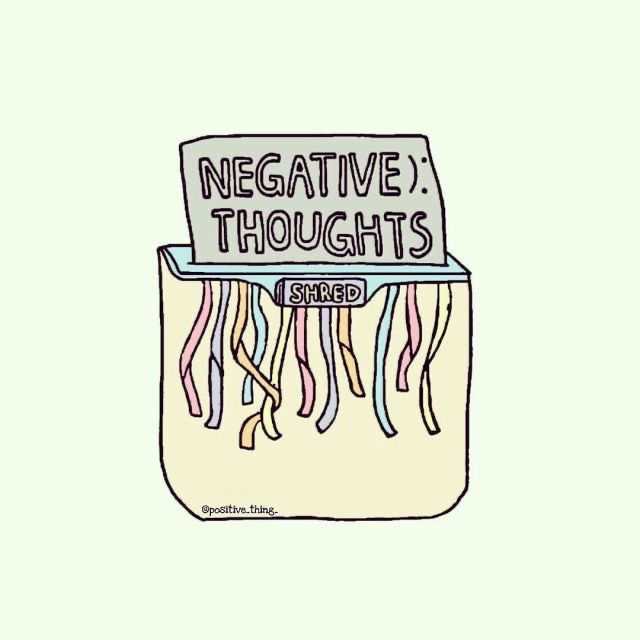"New Year, New Me": Was the old you so bad?
- Abi

- Jan 27, 2019
- 4 min read
Updated: Apr 5, 2019
Why you should consider ditching your New Year’s Resolutions (if you haven't already) and revolt against Blue Monday.

I have always set New Year’s resolutions and I expect I always will. I see it as a refreshing opportunity to reflect on my year, to review what I have achieved, and set goals for things I want to do and things about myself that could be bettered.
Having said this, and shown you my personal (and in some cases, embarrassing) new year's resolutions, I’ve recently been exposed to the arguable reality of new year’s resolutions: They are a mere ploy of capitalism and consumerism.
Matt Haig, mental health campaigner and bestselling author of Reasons to Stay Alive recently took to Twitter to express his frustration with New Year's Resolutions, suggesting that they are the epitome of:
“capitalism making us unhappy again. Turning us into products that need updating every year. But we’re not iPhones. We don’t need replacing like another piece of plastic trash. Diets aren’t salvation. Get in touch with the old you.”
Haig has this belief that the world is out to get us, or, more specifically, as he writes in Reasons to Stay Alive, that “the world is increasingly designed to depress us. Happiness isn’t very good for the economy.” He makes a point. If we were encouraged, or even allowed, to be satisfied with ourselves as we are, rather than be subject to the constant advertising and social media that seems to insist we require constant improvements to feel content and pass as adequate, then many areas of commerce would simply cease. In The Sun and her Flowers, poet Rupi Kaur describes the beauty industry to be “a trillion-dollar industry that would collapse if we believed we were beautiful enough already”. It is in this way that industries, including beauty, fitness and travel, rely upon a sense of human inadequacy, fostered through holidays such as New Year, to survive.
Such social subterfuge can also be seen in the concept of Blue Monday, a day that now marks our calendars on the third Monday of January. Using a 'scientific formula' based upon the very notion that, amongst other things, people have probably given up their new year’s resolutions by now and are feeling bad about it, it was decided that this Monday is the most depressing day of the year. Yet, what many don't know, is that this concept was originally coined in 2005 as part of a Sky Travel marketing scheme to encourage people to book holidays. And, despite scientists confirming the formula used is utter codswallop, it seems to be receiving more and more attention every year, with marketing corporations latching onto the idea, seeing it as a great excuse to persuade people that you must 'refresh your wardrobe' or 'join the gym' to #beatbluemonday and feel less miserable. All in all, could this be another instance where society wants to remind us of our dissatisfaction with life for their own profit?
Perhaps Haig is right:
“Consumerism is about eroding self-esteem. […] And there is nothing like a new year for consumerism to make you feel you need to throw yourself away.”
But, before we go and throw in the towel, we must, of course, consider the other side of things. Many of Haig's followers did just that, as they replied to his controversial tweets to express their disagreement. Some even shared their own life-changing experiences with New Year's Resolutions as they found them to serve as the catalyst that turned their lives around. It is in this way that a new year can serve as the push that many people have been waiting for to begin forming new habits and in turn attempt to improve their mental or physical health.
What Haig and many psychologists suggest however, is that January is not an ideal time to try to initiate a healthier life-style. It is cold, it is rainy, it is dark, you are surrounded by left-over Christmas food, the festivities are over, and you're back at your 9 til' 5 job.
“If anything January is the month of hibernation not rejuvenation. Stay inside. Avoid shops. Be calm. Go for a run if you fancy it but not one of those must-go-through-pain-to-get-rid-of-body-fat runs." (Haig)
With all this in mind, it becomes apparent that we may be, at this stage, setting ourselves unrealistic goals. If so, New Year's Resolutions serve only as measures of failure. If this sounds pessimistic to you, you'll be even more demoralised at hearing what Existential counselling suggests of setting goals:
“Goals are the source of misery. An unattained goal causes pain, but actually achieving it brings only a brief satisfaction.” (Emmy van Deurzen)
Oh. Surprisingly enough what Deurzen suggests here is confirmed in the biology of our brains. Studies have found that higher levels of dopamine, the pleasure hormone, are released upon anticipation of a reward than upon actually receiving that reward! So, the solution?
"Just be kinder to yourself and learn to like the person you already are.”
Simple, right? No. Perhaps even a lifelong mission. Hence why a lot of what I will be going on to discuss in future posts is about exactly this: not promoting change, but realising that we are enough as we are and that getting to know and love our authentic, unadulterated selves is perhaps the only route to happiness.







Comments